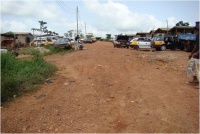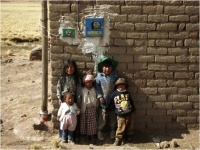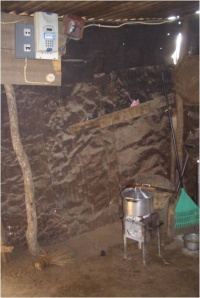Difference between revisions of "Type of On-Grid Activities"
From energypedia
***** (***** | *****) m |
***** (***** | *****) |
||
| Line 311: | Line 311: | ||
*<span style="color: black; font-family: arial">In several countries power generation capacity cannot <span style="color: black; font-family: arial">keep up with<span> </span>grid extension</span> <br></span> | *<span style="color: black; font-family: arial">In several countries power generation capacity cannot <span style="color: black; font-family: arial">keep up with<span> </span>grid extension</span> <br></span> | ||
| − | [[Category:Grid]] | + | [[Category:Grid old]] |
Revision as of 11:28, 4 May 2010
Grid extension/densification approaches
Type of grid activities
Grid extension: Benin, Ghana, Nicaragua,. Nepal
Grid densification(with and without transformation): Bolivia, Peru, Mozambique, Uganda
Costs
|
<span /> |
Benin |
Ghana <span /> |
Nicaragua |
Bolivien |
Peru |
Mozambique |
|
Costs/ Connection (€) |
2000 |
5540 |
220-588 |
62 |
90 |
134 |
|
Tariff |
Social tariff |
Social tariff |
Social tariff |
Social tariff |
Social tariff |
Social tariff |
|
Security of energy supply |
Medium |
Medium |
High |
High |
High |
high |
Financial support
|
<span /> |
Benin |
Ghana <span /> |
Nicaragua |
Bolivien |
Peru |
Mozambique |
|
EnDev subsidy |
70% |
99% |
100% |
20% |
22% |
100% |
|
Government |
30% |
0% |
0% |
0% |
0% |
0% |
|
Utility |
0% |
0% |
0% |
0-80% |
0% |
0% |
|
Customer |
0% |
1% |
0% |
0-80% |
78% |
0% |
Additional Support
- Procurement support
- Developing local standards for grid connection
- Facilitating group applications for grid connections
- Training of local electricians for in-house wiring
- Training of consumers in energy use and efficiency
- Ex-ante savings for connection fees
- Introduction of installment payments of the connection fee linked to the electricity bills
Lessons learnt
- Some utilities are not interested in grid densification
- Poor households are often excluded in extension projects
- Some utilities have great difficulties to organize efficient procurement processes causing severe delays
- Free rider effect difficult to avoid (efficient selection process or accept the effect)
- Detailed monitoring is considered a burden and not always implemented
- In several countries power generation capacity cannot keep up with grid extension























